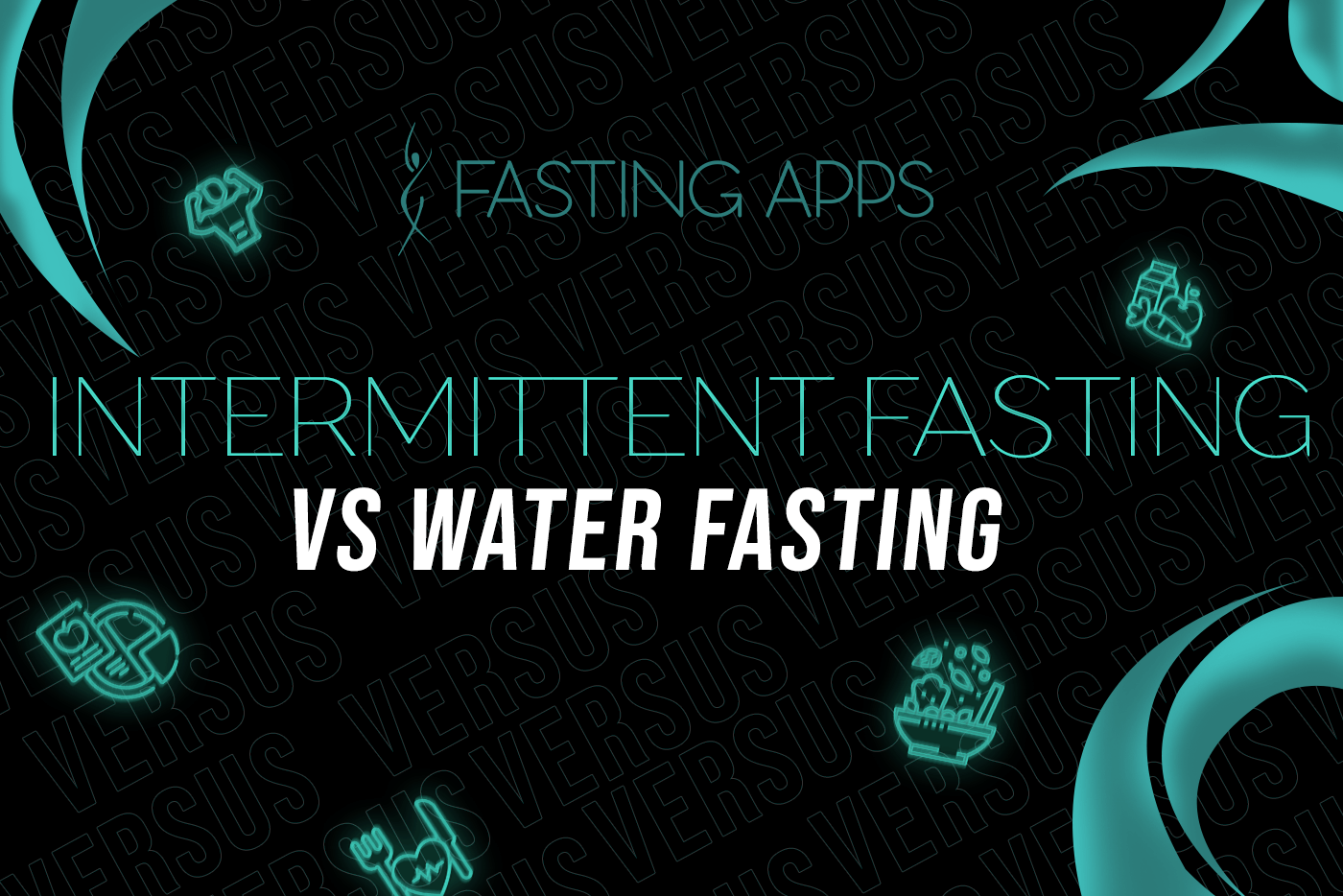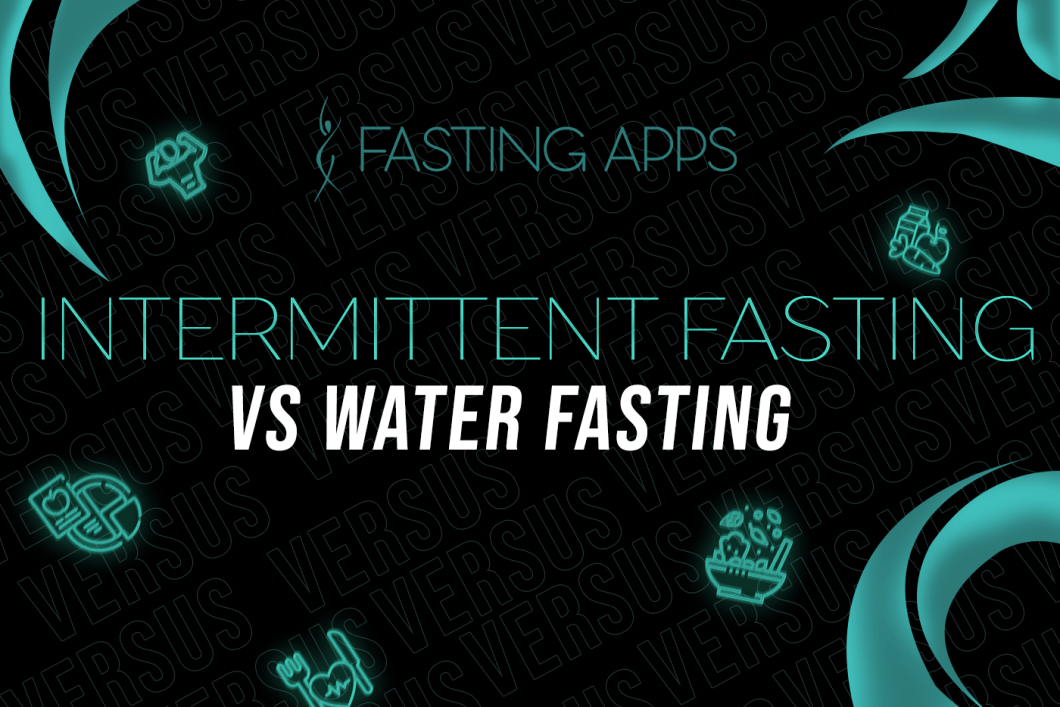Intermittent Fasting vs Water Fasting
Written by Andrew Brewer. Updated on July 2025.
Medically reviewed and fact checked by our team.

Intermittent fasting helps you focus on your eating and fasting windows. For a certain amount of time, you will fast, and this can vary. During this time, you refrain from eating and drinking anything but water. If you only drink water, this is a style of water fast. However, some intermittent fasting plans allow you to drink black coffee and tea, as long as you don’t add any sweeteners - no-calorie or not. Water fasting can be done on its own, and it’s a type of detox diet that you want to approach with caution. Here’s all you need to know.
Key Takeaways
Intermittent fasting is a powerful tool for weight loss and overall health and well-being. It can help control blood sugar, boost metabolism, and lower cholesterol.
Water fasting is a type of detox diet that should be approached with caution, as it can be dangerous in the long term. It can help trigger autophagy and disease prevention, but should not be done for too long without medical support.
The main difference between intermittent fasting and water fasting is that during water fasting, you can only consume water, while during intermittent fasting, you can still consume non-caloric beverages like coffee or tea during your fasting windows.
Water fasting can increase the risk of developing orthostatic hypotension, while it can also worsen some existing conditions like gout. Consult with a medical professional before starting water fasting.
Choosing between intermittent fasting and water fasting depends on your goals and personal health status. Intermittent fasting may be a more sustainable option for long-term health and wellness benefits, while water fasting can be considered as part of an intermittent fasting plan or under medical guidance.
Benefits of Intermittent Fasting
Intermittent fasting is a powerful, multipurpose tool you want to have in your arsenal. You pick a time frame that you want to fast, which can range from 12 hours to a few days. During those hours, you refrain from eating and drinking. Even some supplements can trigger metabolic processes, so you should not take them. When you follow intermittent fasting, you will lose weight, but it’s more than that. You’ll also control your blood sugar, boost your metabolism, lower your cholesterol, and improve your overall health and well-being. It’s extremely effective at making you look and feel better.
Benefits of Water Fasting
Water fasting is growing in popularity, but you’ll want to approach this with caution. It’s a type of detox diet that can be dangerous in the long term. Water fasts can last up to 72 hours, and they can help you lose weight. People try water fasting and other detox diets to help improve their health. Much like intermittent fasting, water fasting can trigger autophagy, allowing your cells to regenerate. Because of this, it can be powerful in terms of disease prevention and maintenance. Do not water fast for too long without the support of a medical professional, especially if you’re on medication.
What are the Differences?
There are similarities between aspects of intermittent fasting and water fasting, so it can be challenging to decide which is best.
Water
On water fasting, you only allow yourself to consume water throughout the day, which doesn’t sound that different than your fasting windows. This is true, to an extent, but after you’re done with your water fast, you go back to eating as you did. Sure, you don’t want to break your fast with a big meal, but overall, you’re not controlling when you eat, you’re just controlling the days you can only drink water. On these days, during a water fast, you need to abstain from food and other drinks.
Fasting Windows
The fasting windows between these types of intermittent fasting are another thing that sets it apart. Typically water fasts last between 24 and 72 hours, while intermittent fasting depends on the plan. 16/8 is the most common, and you fast for 16 hours. During that time, you can drink milk, though some plans allow for black coffee and tea without sweeteners.
Hypotension
During water fasts, you increase your risk of developing orthostatic hypotension, which is when your blood pressure drops dramatically, causing you to feel dizzy, lightheaded, and potentially faint. Not all people face these symptoms during a water fast, so it’s hard to know how your body will react.
Worsen Existing Conditions
Water fasting can actually make some existing conditions worse, including gout. Consult with a medical professional before you start water fasting.
How to Choose?
Water fasting is a natural part of intermittent fasting, but you can also water fast on its own. Consider what you’re hoping to achieve. Long-term water fasting can actually make existing conditions worse, so consult with a medical professional before starting. Intermittent fasting does not appear to have the same issue.
Our #1 Recommendation: DoFasting
It's easily one of the best intermittent fasting apps that offers plenty of features for anyone!
Use coupon code: 10app to get an extra 10% off all memberships.
FAQ
Can you drink liquids during intermittent fasting?
Yes, you can drink liquids during intermittent fastings, such as water, coffee, tea, and bone broth.
Can water fasting be harmful to health?
Water fasting can be harmful to health if not managed properly, as it can lead to dehydration and nutrient deficiencies. It is important to consult with a healthcare professional before attempting water fasting.
What are the potential health benefits of water fasting?
Water fasting has potential health benefits, such as improved insulin sensitivity, reduced inflammation, and weight loss. However, these benefits may come with risks, and it is important to approach water fasting cautiously and under medical supervision.


